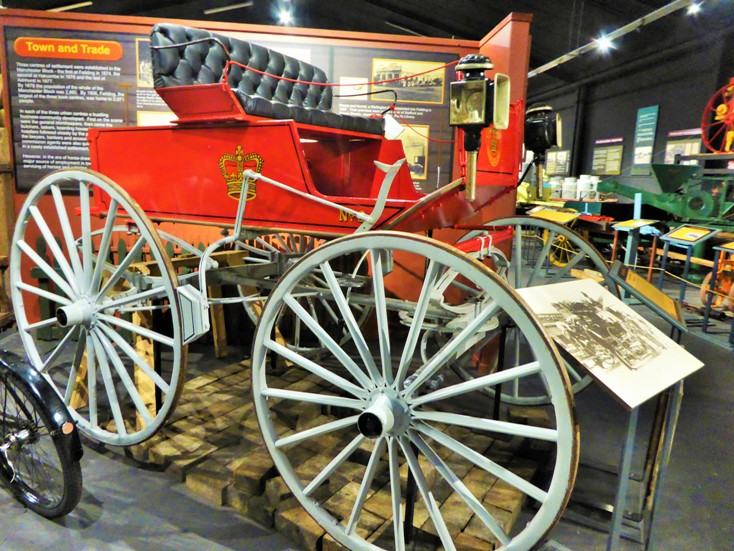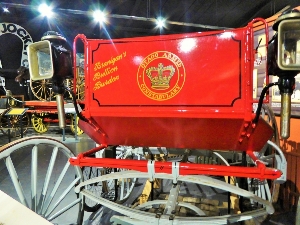The bright red Gold Escort Buggy carried gold under armed escort from the Otago goldfields to Dunedin in the 1860s.
When gold was extracted from the ground and held in mining camps in the very early gold rush days, there was little law and order, so Armed Constabulary – constables of the Police Force – provided armed escorts to transfer gold bullion or raw gold from the diggings to Dunedin.

When the Otago Provincial Government became concerned at the increasing lawlessness on the Otago goldfields, the provincial government sent for Australian police help. Irishman St John Branigan answered the call and arrived in 1861, with 20 hand-picked volunteers from the Victorian Mounted Police Force, to act as mounted policemen – also known as ‘Branigan’s Troopers.’
Using the buggy, Branigan and his troopers quickly established law and order in the camps and with armed escorts to Dunedin. The competence and reliability of this force soon won the settlers’ confidence and approval. In 1863 Branigan was promoted to Police Commissioner.

A key town on the gold escort route to the Whakatipu gold fields was named ‘St John’s’ after him, but this was later renamed Kingston (more commonly known today for the Kingston Flyer). Branigan’s general efficiency in this post made him known throughout the colony, with the result that in 1869, the new William Fox ministry invited him to organise the Armed Constabulary for service in the Te Kooti war.
Toward the end of 1869, he resumed his post; however, in the following year, he suffered severe sunstroke and was obliged to retire. Branigan returned to Dunedin.